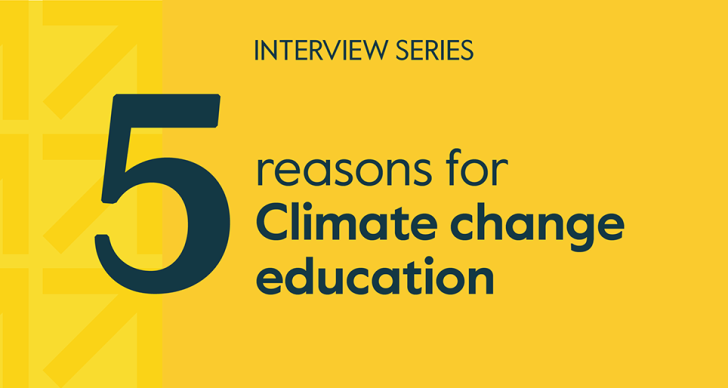Education is widely recognized as the key to addressing the climate crisis. With Cambridge launching a new introduction paper on climate change education for schools worldwide, we spoke to Frances Powell, the headteacher at a leading sustainability-focused school, to learn more about their approach to teaching climate change.
In this blog series, Cambridge engages with school leaders by asking five key questions about the value of a Cambridge education in their institutions. Our goal is to collaborate with schools globally to provide an education that equips learners with the knowledge and skills they need to make a positive impact on the world.

1. How do you teach climate change inside and outside the classroom?
Answer: We emphasize a personal connection to the climate, starting locally within our community, and expanding nationally and globally. At the IGCSE level, we integrate these perspectives to understand climate change’s global impact.
The Cambridge IGCSE Global Perspectives course is vital for encouraging students to think beyond their comfort zones.
2. What has been your experience teaching climate change education through the Cambridge IGCSE Global Perspectives?
Answer: The flexibility of the Cambridge IGCSE in Global Perspectives is remarkable. It empowers students with research skills and knowledge, crucial in our information-rich world.
We enhance this by incorporating eco-literacy, focusing on climate action, and using the UN Global Goals as a curriculum roadmap. Teaching climate change is essential; knowledge leads to power and action, preparing young people to address climate change effectively.
3. How can schools ensure that teachers are prepared and confident to teach climate change?
Answer: We recognize ‘climate anxiety’ among young people, so it’s essential to provide them with tools for empowerment. This involves teaching them that while they may not solve the global climate crisis, they can make a local impact.
At The Arbor School, we teach the ‘Global Impact Certificate,’ where students identify and address local issues, reducing anxiety by showing them the change they can effect.
For teachers starting this journey, my advice is to stay well-informed and maintain hope in lessons. Empowering students is key.
4. How does empowering learners prepare them for their future journeys?
Answer: Empowered learners carry skills into their further studies and life stages. They understand they can influence their behaviors and those of their families and communities. They are equipped with tools to disseminate correct information and make a broader impact.
5. What support do you need from Cambridge to deliver high-quality climate change education?
Answer: We need up-to-date, relevant information amid the vast range available. While we use the UN Global Goals, we would benefit from effective workshops for sharing successful strategies among teachers. Toolkits for community engagement projects are also essential. These supports from Cambridge would enhance our climate change education delivery.






Leave a Reply